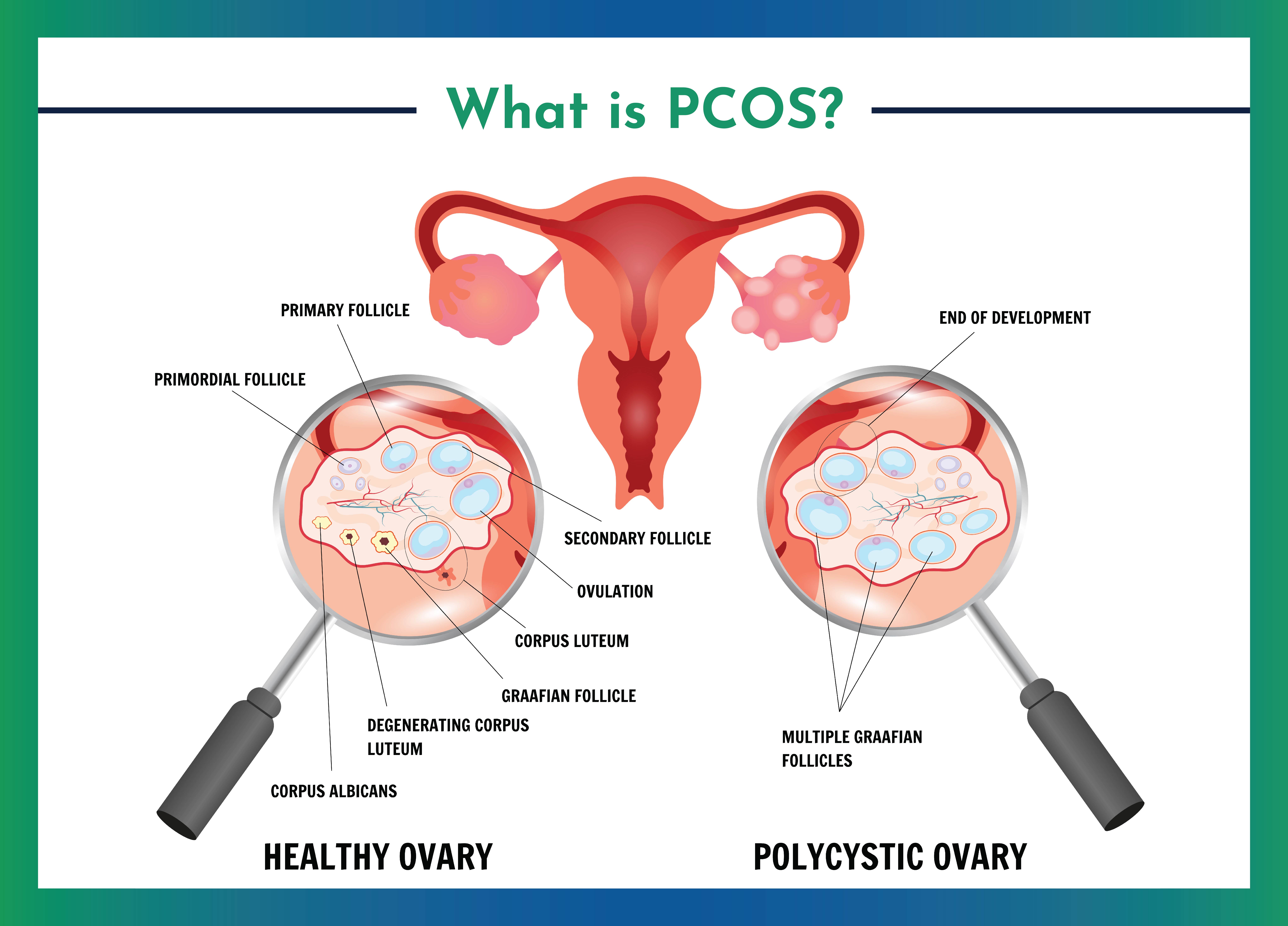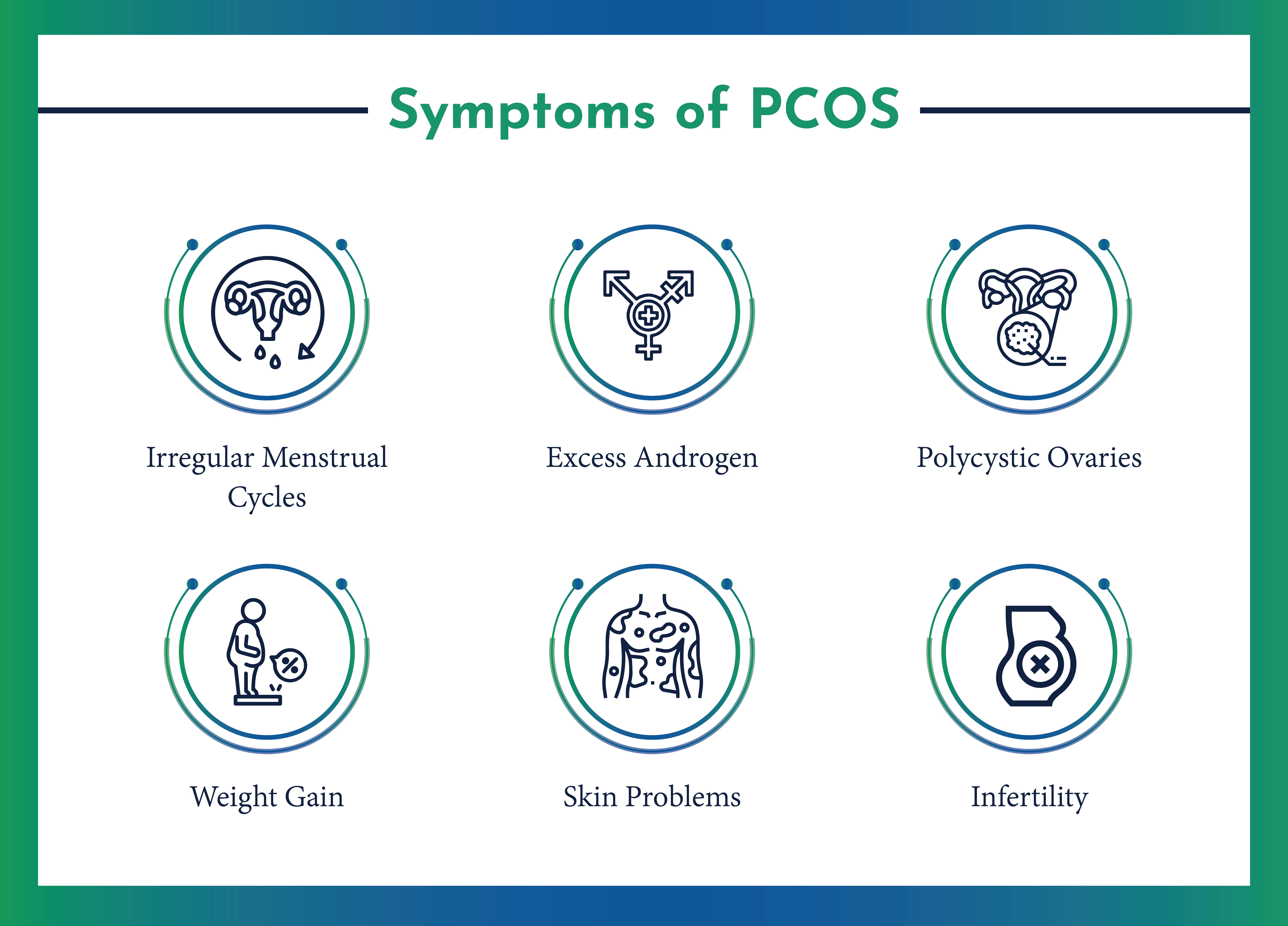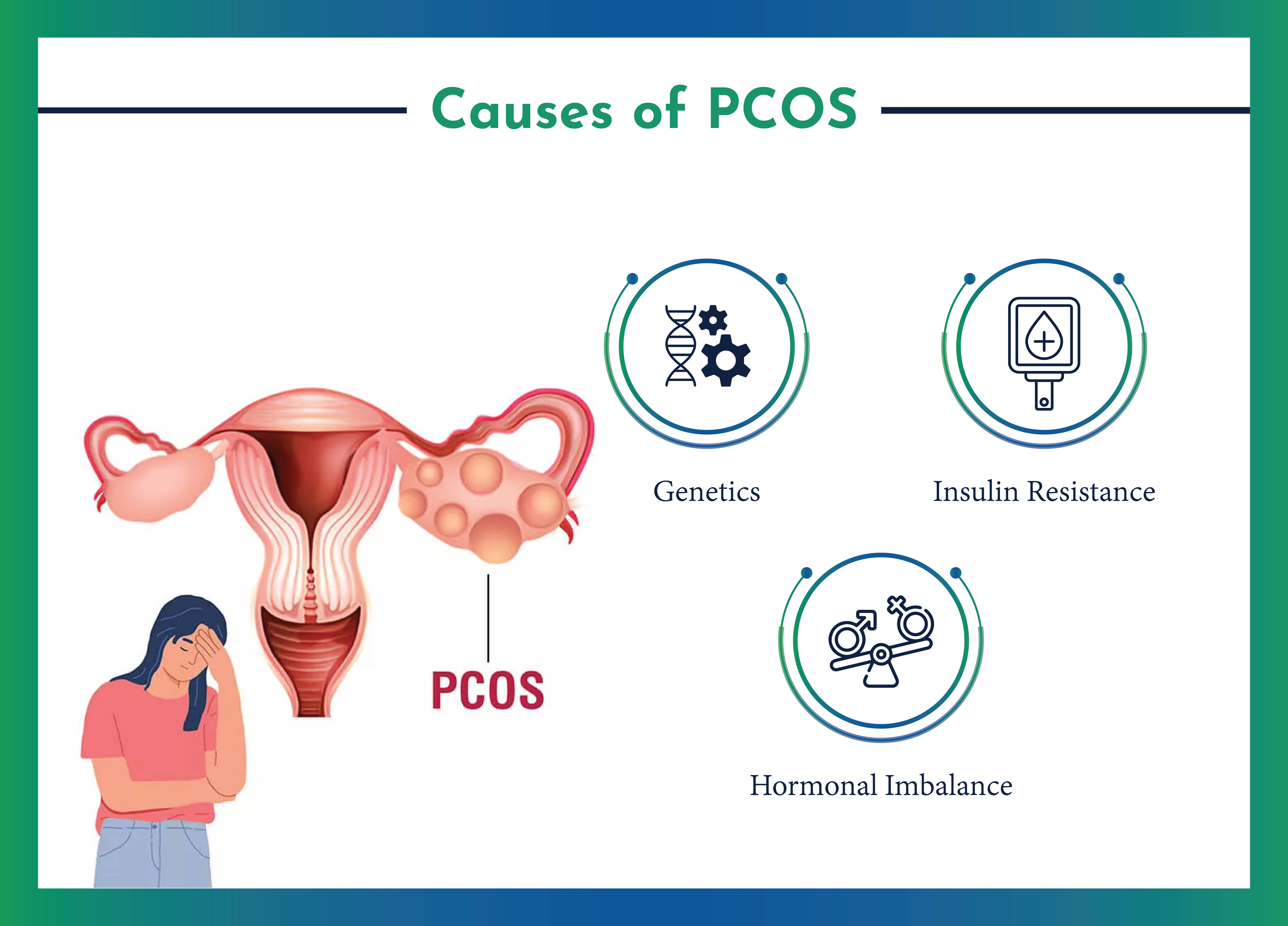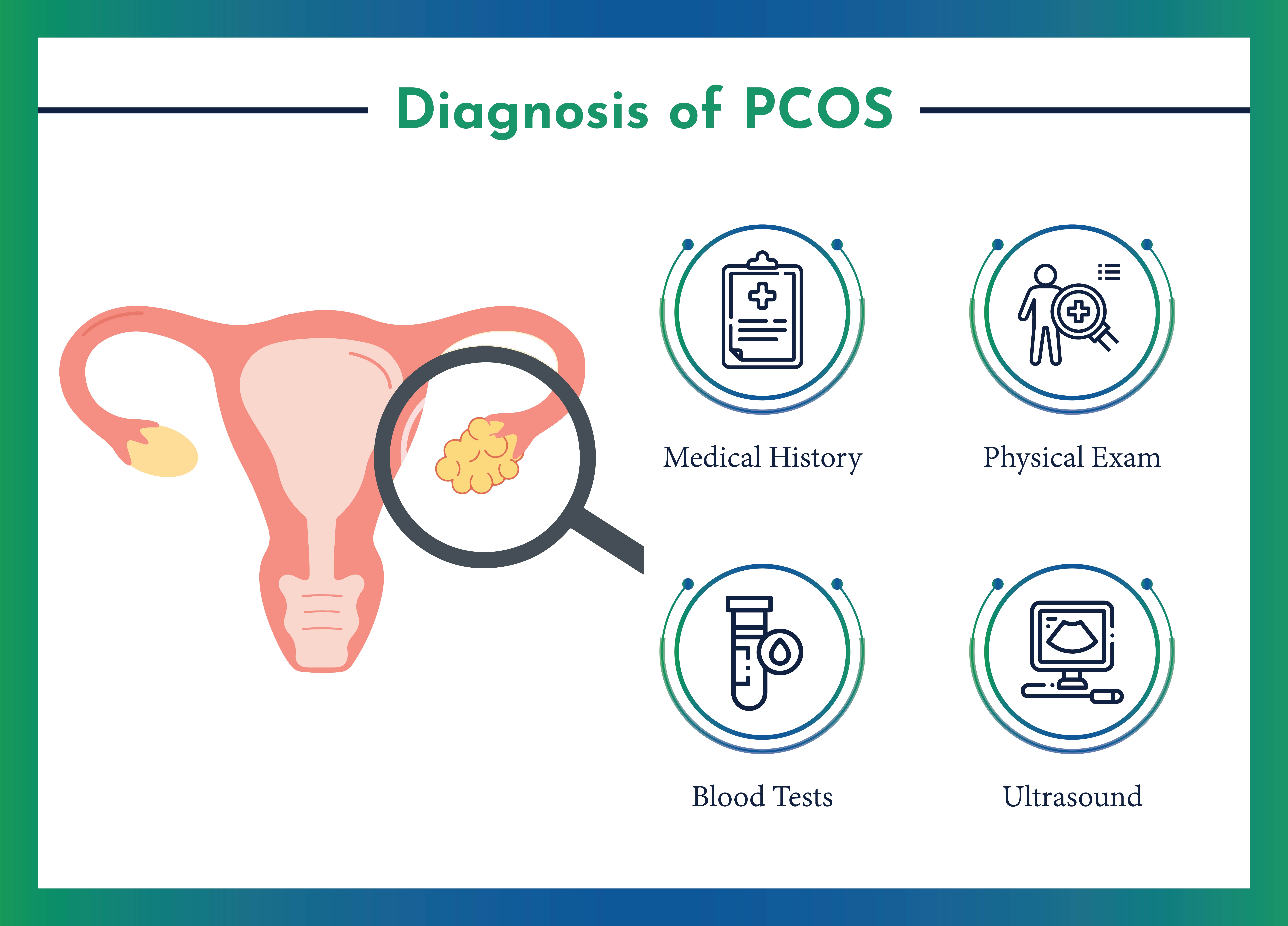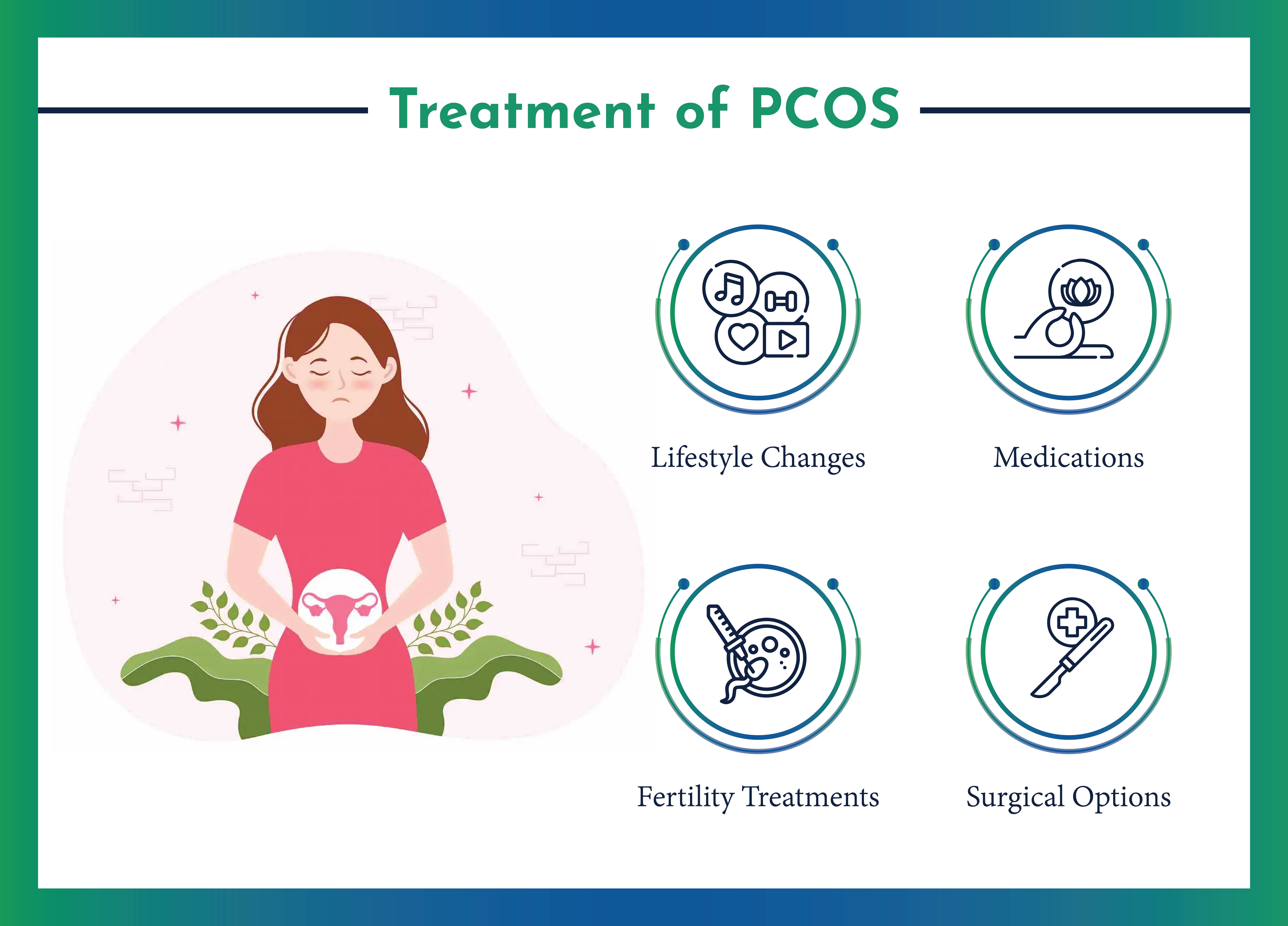Frequently Asked Questions (FAQs) About
PCOS:
What causes PCOS?
A PCOS is thought to result from a combination of genetic and environmental factors. High
levels of
androgens, insulin resistance, and inflammation are common in women with PCOS.
What are the common symptoms of PCOS?
Common symptoms include irregular menstrual cycles, excessive hair growth on the face and
body,
acne, thinning hair on the scalp, weight gain, and difficulty getting pregnant.
Can PCOS affect fertility?
A Yes, PCOS is one of the most common
causes of infertility in women due to irregular ovulation or an
ovulation (lack of ovulation).
How can PCOS be managed?
Management strategies include lifestyle changes like diet and exercise, medications to
regulate
menstrual cycles, reduce androgen levels, and improve insulin resistance, and fertility
treatments if
pregnancy is desired.
Is there a cure for PCOS?
A There is no cure for PCOS, but its symptoms can be managed effectively with proper
medical care and
lifestyle modifications.
Can lifestyle changes help with PCOS?
A Yes, weight loss through a healthy diet
and regular physical activity can improve symptoms and help
manage PCOS. Reducing carbohydrate intake and opting for a low-glycolic index diet can also
be
beneficial
What medications are commonly prescribed for PCOS?
Common medications include hormonal
contraceptives to regulate menstrual cycles, anti-androgens to
reduce symptoms like excessive hair growth, and motorman to improve insulin resistance.
Can PCOS lead to other health complications?
A Yes, women with PCOS are at higher risk
for type 2 diabetes, high blood pressure, heart disease, sleep
apnea, and endometrial cancer.
Can PCOS symptoms change over time?
A Yes, symptoms of PCOS can change,
especially with age and changes in weight. Menstrual cycles may
become more regular as a woman approaches menopause, but metabolic issues may persist or
worsen.
